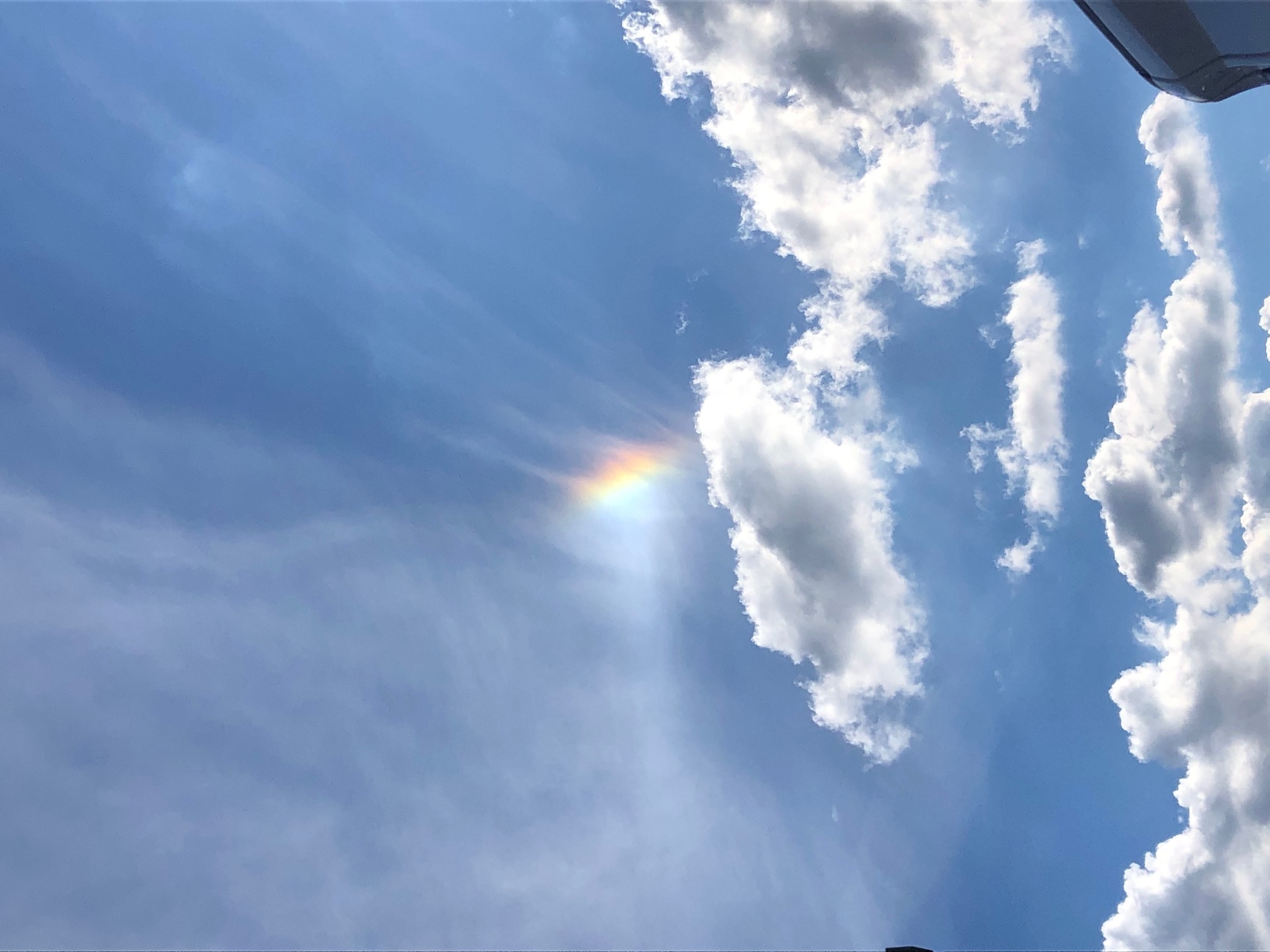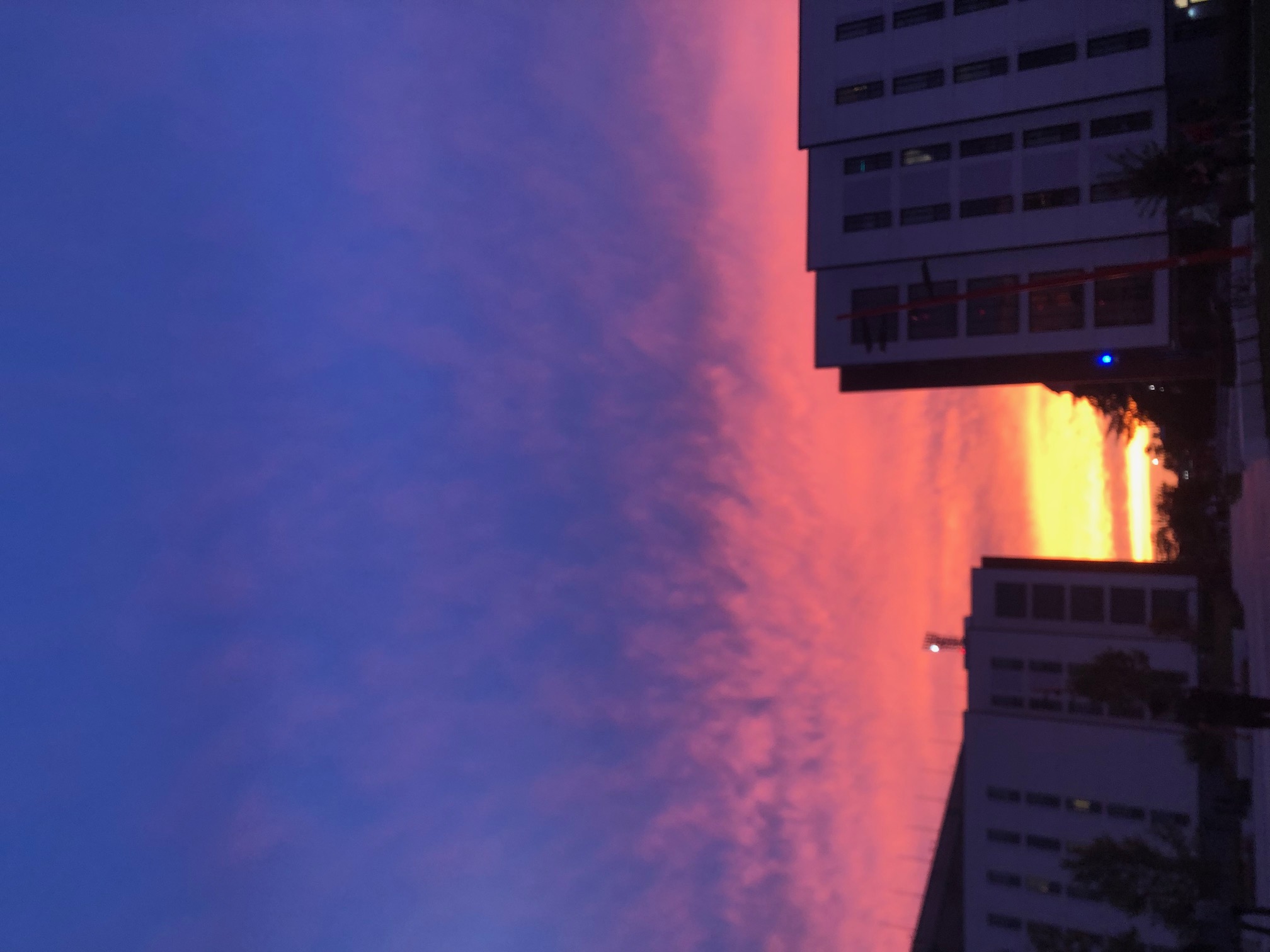

Participating in Science and Global Change has given me insight on the foundations of science and the implications of climate change I previously did not learn about. More importantly, what I learned in colloquium has influenced me to be more curious and rational in my daily life.
Real Life ExperiencesA month ago, I remember discussing with a friend about airplane food. My friend, who we'll call W, has never liked airplane food because they once got sick after eating airplane salad. As such, W didn't want to eat any of the airplane food on their upcoming flight. While I agreed with W that yes, airplane food is unappealing, I noted that correlation doesn't imply causation; just because airplane food made you sick one time doesn't mean airplane food causes food poisoning. This was a small incident, but I still noticed the use of logical fallacies in an argument.
Later, earlier this week, I read about the dire life of climate experts in the American Midwest (the article later posted to the Announcements page). According to this KCUR news report, local hostility from Midwesterners towards climatologists and meteorologists has caused many of them to quit their jobs, resulting in less scientific awareness. For me, it was a topical article to read given that we just learned about how scientists are often misunderstood and looked on with suspicion in society during colloquium. Many of the scientists received threatening emails regarding their supposed political agendas, even though they were just trying to inform people about real-world events. It also tied in with Katharine Hayhoe's essay from All We Can Save interviews where she noted that while people who deny climate change are a small minority, they are often overly visible to climate activists and scientists.
Role of Supporting CoursesIn ECON181, a supporting course I took during my first semester, we discussed the possibility of colonizing Mars during a homework assignment. For this question, my partner and I discussed how the first people to arrive at Mars can't just split up the planet for themselves. We agreed that humans colonizing a planet that is inherently unsuitable for human life meant that to some extent, the tragedy of the commons will always occur.
Another supporting course I took was CMSC132, Introduction to Object Oriented Programming II. In one lecture, we learned about the importance of algorithmic efficiency from a computational standpoint. However, my involvement in SGC made me also wonder about algorithmic efficiency from an environmental standpoint. After looking into the subject during my own time, I realized the importance of projects such as the Green Algorithm, which can evaluate the energy needs of any algorithm by considering various factors such as the programs' own resource usage and the data center's own energy efficiency. While I didn't write any green algorithms, I wouldn't have considered that problem without having participated in SGC and in Scholars.
Living-Learning Program ExperiencesSurprisingly, most of the developments I made in Scholars were independent of other people. Many of the people I met and befriended during freshman year quit Scholars, so in my sophomore semesters, I didn't really feel like the other students in the program enhanced my personal learning experience. As a result, I didn't feel connected to the group projects, because I didn't enjoy my groups.
I would say I've contributed a lot to SGC, especially on the outreach side. Last year, I joined Scholars Ambassadors, and I participated in a lot of panels and discussions regarding both SGC and Scholars. I plan to continue this by participating in Scholars Ambassadors this year as well. I don't remember if I met or saw any current SGC students, but I hope that I was at least able to inform someone about whether or not SGC would be a good program for them (it is!). I also applied to be a peer mentor, and I hope the students I guided had a smoother high school to college transition.
Challenges and New ExperiencesThe coursework in SGC has definitely opened my mind regarding the nature of pseudoscience. Prior to starting SGC, I figured that people who subscribed to pseudoscience ideas were just dumb and needed to face the facts. However, the colloquium lecture and the readings showed me otherwise, as while trusting science is an uphill battle, pseudoscientific ideals can be supported and even espoused by the media and society at large. I now feel like the best way to combat pseudoscience is to increase media awareness and critical skepticism.
FutureIn the future, I can easily see my experience in SGC continuing to influence my experience at UMD. I previously didn't really consider my experience in science classes seriously because I figured I wasn't going to be majoring in a science-related subject. Consequently, I didn't really consider how my future prospects would be affected by any science-related classes I took. However, thanks to my interdisciplinary experience in Scholars during these past two years, I've definitely become more inspired to pursue future projects and careers at companies that prioritize sustainability.


